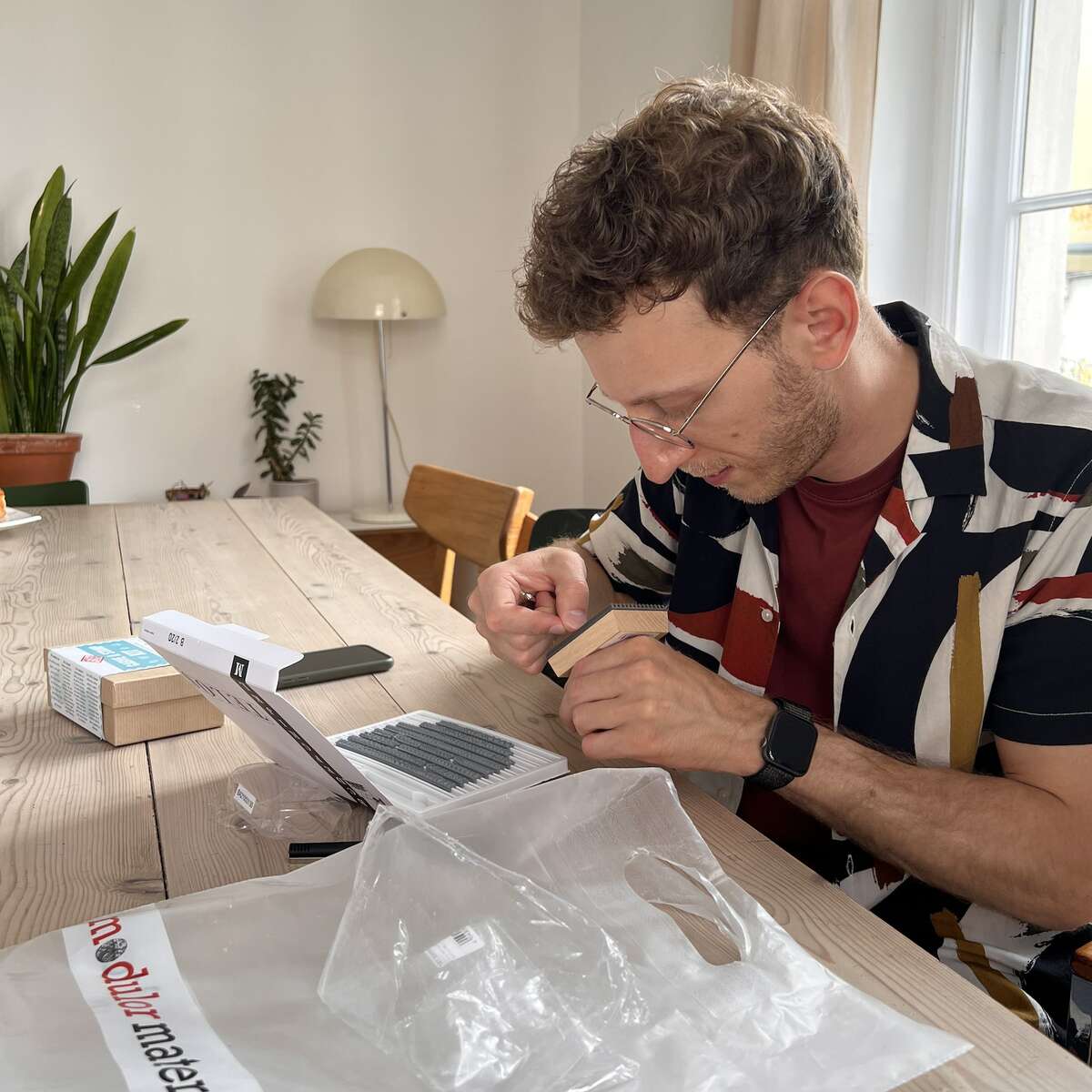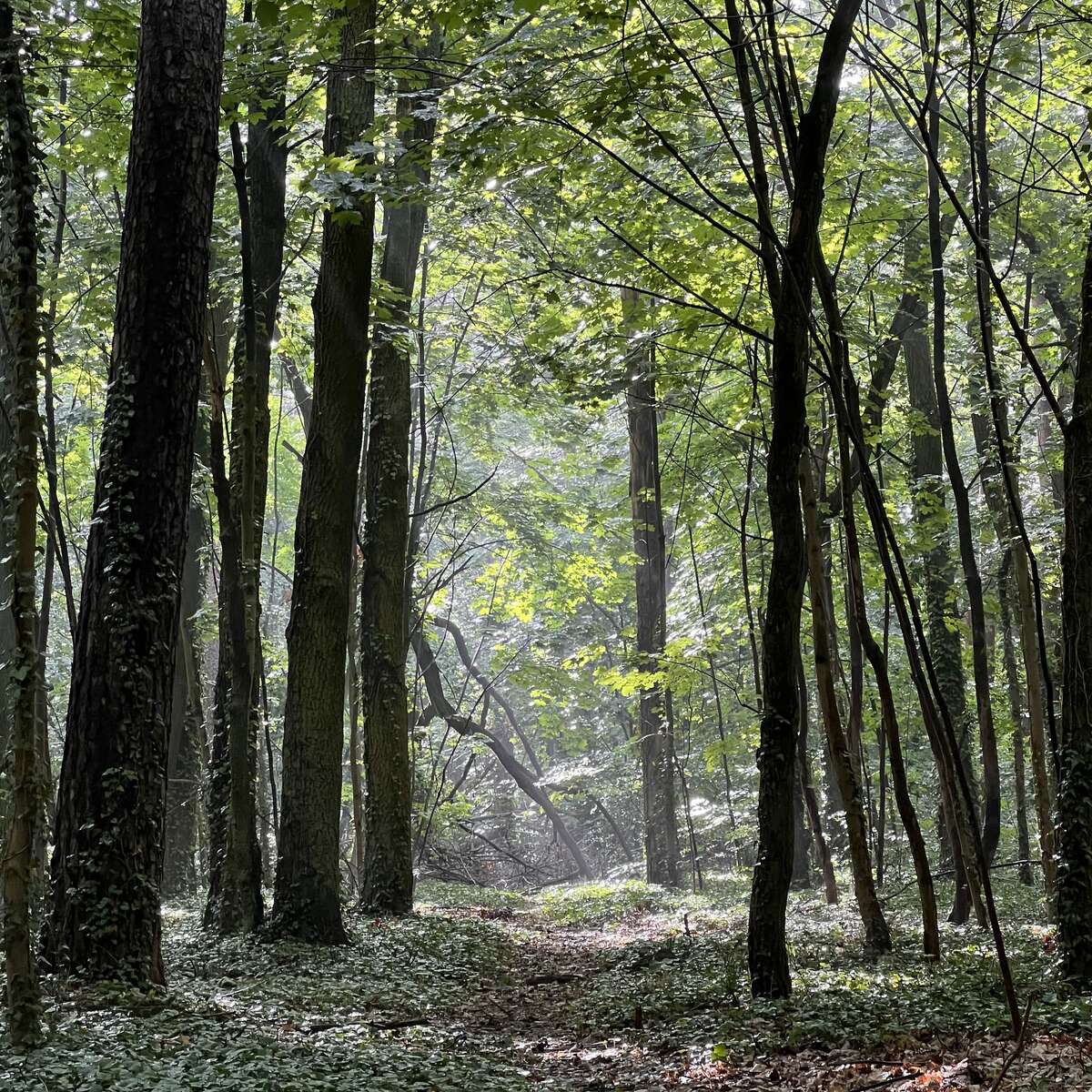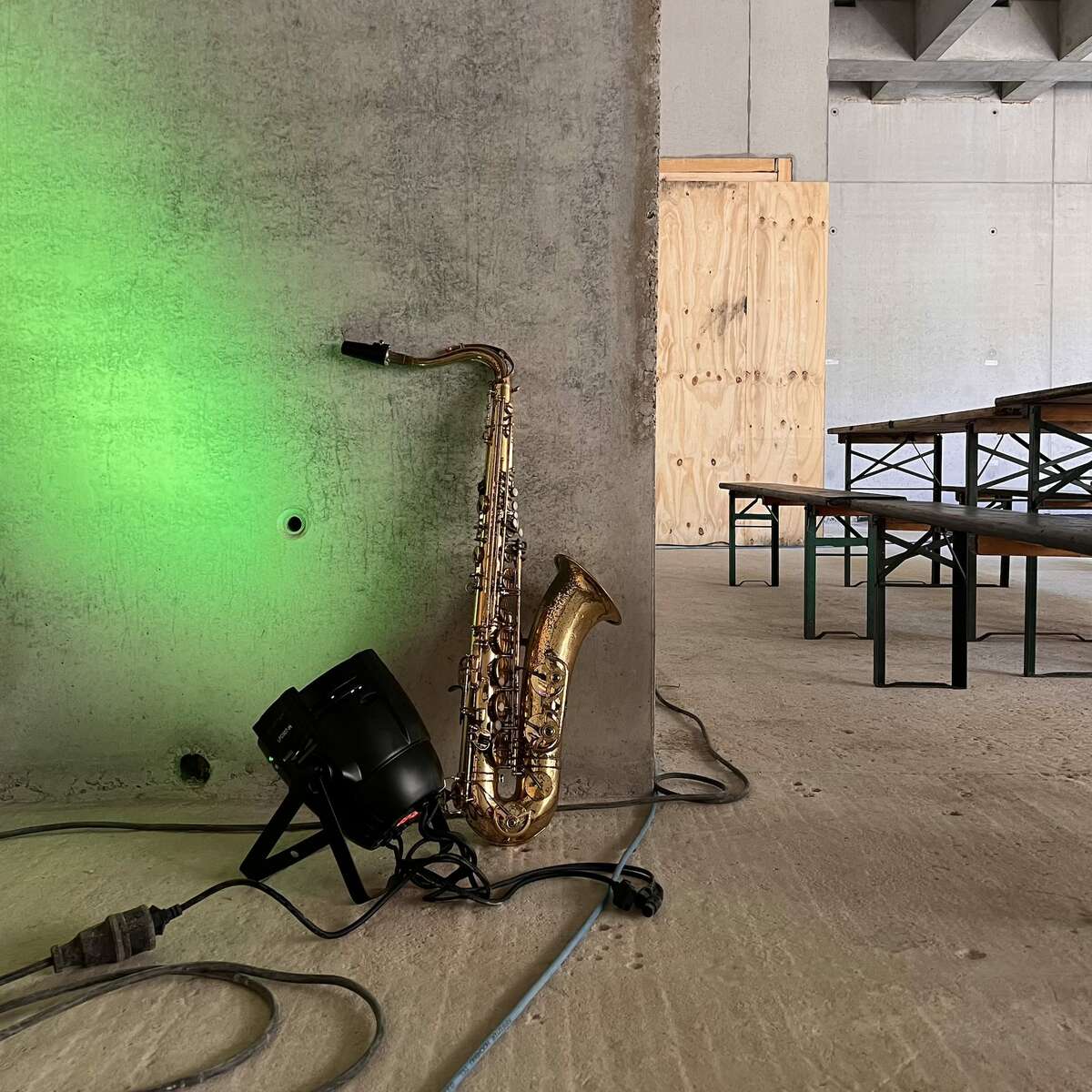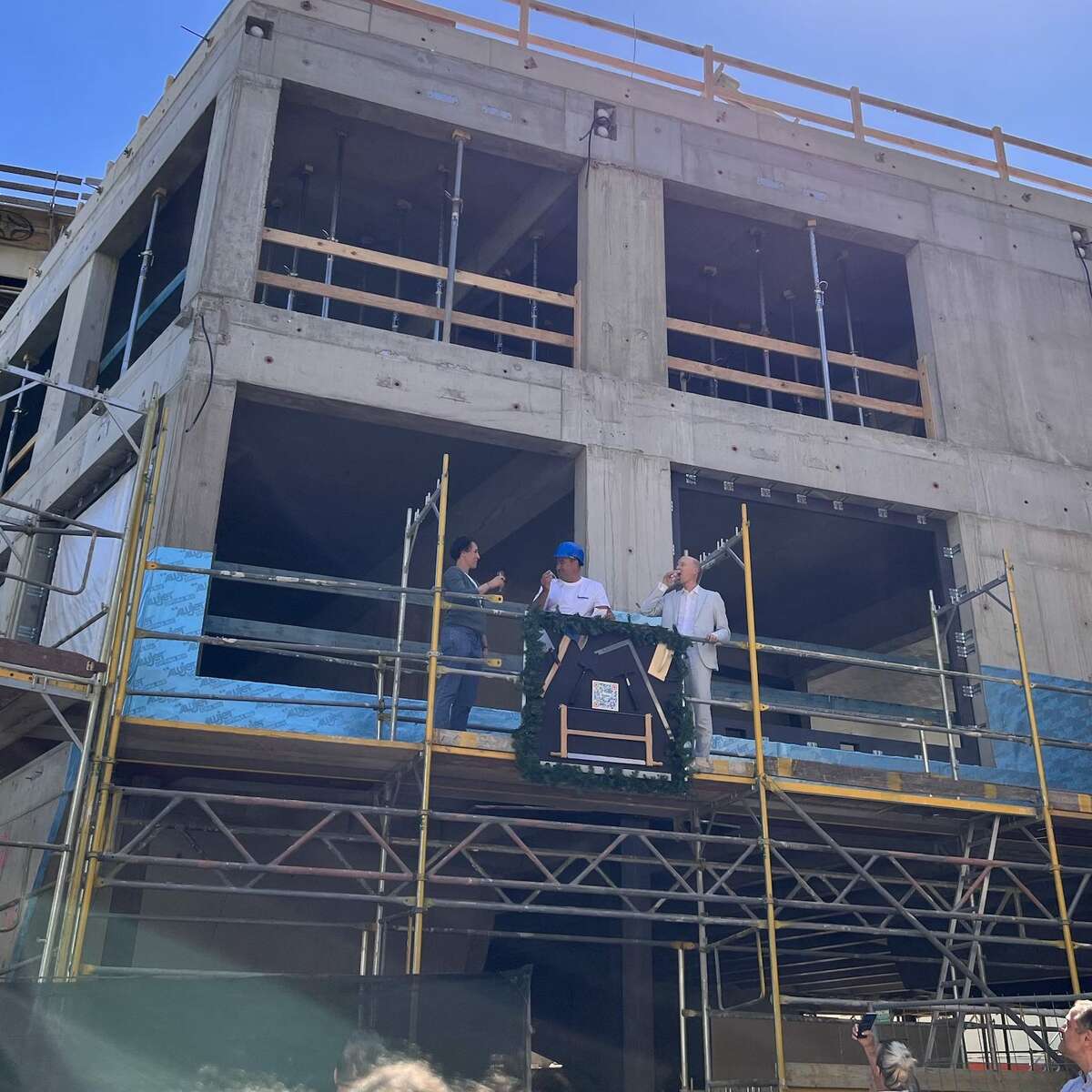Heya and welcome to the sixth issue of this monthly newsletter – we’ve reached the halfway point of 2022! I’m a few days late with my June recap, but there’s a reason: Today is the UN’s International Day of Cooperatives and fittingly I co-founded a cooperative yesterday! Wait, what? Let’s quickly zoom out for some context!
🚨 Lots of heavy thoughts and long sentences coming your way, I’m sorry
We’re not only halfway into 2022 already, we’re also 25% into this decade and as we all know these coming years are a crucial time in the unfolding climate catastrophe: We still have the chance to save so much and mitigate the worst, but time is running out and greenhouse gas emissions are still rising. Not on a good path right now.
It’s pretty clear that capitalism is at the root of this environmental destruction / extermination event, being an exploitative system that always takes more than it gives back: It privatizes profits and socializes losses as “externalities”, it breeds inequality, amplifies privilege and keeps way too many people in poverty and dependence, while making a tiny group wealthy beyond imagination (mostly white men, of course). Its obsession with growth leads to huge, bureaucratic and hierarchical companies, being run as autocracies, alienating workers as mere cogs in the machine, nobody taking responsibility for the harmful actions of the larger organization. As a system, capitalism prioritizes competition over cooperation, which is not only wasteful, but also feeds the western individualistic mindset: it’s you against everyone else, thereby pitting us all against each other in a stupid rat-race over artificially scarce resources, like housing and health care. The climate crisis is an inevitable consequence of capitalism’s hunger for perpetual growth. Most insidious of all, capitalism has seeped into our thinking so much that it feels natural, as if it was the natural order of things, survival of the fittest and all (which is also a flawed narrative, dismissing all of nature’s symbiotic systems and relationships). It’s easier to imagine the end of the world than the end of capitalism, as the popular saying goes. Sigh.
But hey, sometimes we do have a choice – sometimes we can choose where to direct our energy and what to amplify: When we form new communities, found businesses or transform existing ones, we can choose to replicate those harmful patterns or we can break with them and create bubbles which function differently. I’m convinced that we have to fundamentally change work and how business is done, if we want to have a shot at mitigating the climate crisis. In the process we might also create healthier, more equitable societies. Remember, merely 100 companies are responsible for 71% of emissions and companies are just people, when it comes down to it.
For a long time I’ve felt powerless and unsure what I can contribute here, but over the past months I’ve sat down with a few thoughtful people and we’ve sketched out a new kind of workplace. A place that embraces emergence over hierarchical planning, a place that’s owned by all its workers, embracing diversity and new perspectives, which is democratically governed, feminist, anti-racist, curious and humble, choosing cooperation over competition, operating as a distributed team with asynchronous workflows, enabling maximum flexibility for its people, empowering them to live the life they want. That workplace would embrace calm communication and ethical design, choose resilience over efficiency, shedding hustle culture and productivity obsession, prioritizing relationships, people and the planet over profit, staying deliberately small and personal. It would work to redistribute its inherent privilege, uplifting everyone who works there and everyone in its proximity. It would be community-driven, blurring inside and outside, sharing transparently what happens, be open about its shortcomings while always striving to do better; it would do the right things, make the right choices, even if they’re hard, creating work filled with joy, meaning and integrity. It would ultimately transcend capitalism and become a post-capitalistic organization (to reach for the c-word again). It would also turn a healthy profit, but treat money as the air it breathes, rather than an end in itself.
Okay, that was a lot. Most people I talk to about this stuff immediately reach for the word “utopian”. True utopias are of course impossible, but how far-fetched is all of this really?
Anyhow, yesterday I met with two other people in a coworking space in Berlin-Neukölln. We signed some papers and thereby officially founded a new organization: It’s called Village One and it’s a somewhat utopian design + tech cooperative, following the ideals outlined above. At first we’ll build digital products and infrastructure with clients we believe in, but that’s not set in stone forever: Who knows what it can become over time? Since it’s owned by all its people it also has its own will and follows where the majority directs their energy.
Is this a model for each and every company out there? Definitely not, but I believe a worker-owned cooperative is a great form for smaller creative companies: Lots of startups tell their new hires “it’s also your company”, but ultimately that statement is fake. It’s not your company and you won’t be the person reaping the profits. But a cooperative makes this claim real, because everyone meets each other at eye-level and every voice matters, because everyone is an equal owner. Every coop is a radical experiment in workplace democracy. Will it be perfect? No, of course not – but I find the challenges here so much more interesting than those stemming from hierarchy and concentrated ownership.
Village One is the culmination of many years worth of discussions, shower thoughts, books, youtube videos, notes in various note-taking apps and internal monologue … and I’m so excited that we’re making it a reality now! At the start we’ll probably fall short in many regards, but if we make good decisions and get a little bit better each day, then we’ll create something special over time, inching closer to that big vision: an island of sanity, as Margaret Wheatley would call it.
What kind of impact can we have? I don’t know. But I do think we can become a beacon, showing that business™ can be done differently and demonstrating that more often than not there’s a choice which road to take. Maybe in a few years people encounter our story and take something from it, back into their organizations. Change is often fractal, it starts locally, in small contexts and then gets replicated into larger systems, as I learned from adrienne maree brown.
Why Village One? We liked the proverb “it takes a village (to raise a child)”, because it emphasizes that everything is a group effort, embracing cooperation. As far as metaphors go, we like being a village better than the usual families or sports teams – it’s a place of community, where people with different skills meet and create something together, governing the place democratically. New people join, other people leave, it’s in flux, always changing and evolving, through emergence rather than central planning. Village One because this is our first stab at it, but maybe at some point in the future we subdivide and create more villages of this kind? Who knows.
So yeah, here we are, with big ideas and very few people: Christoph Rauscher, myself and one other person (she can not be named yet) + a few other people interested in joining. We’ll get this thing off the ground and then we’ll take it from there! I’m excited to make real what I’ve been thinking about for years and to finally undergo the reality check whether these ideas hold up. Maybe they won’t, maybe there’s a reason why business is done the way it is … but how wonderful would it be if some of this stuff worked out? Worth a try, I’d say!
Side note: We’re obviously standing on the shoulders of giants here … other people have walked this path before us and we’re eager to learn about their journeys. All of this is heavily influenced by countless books, youtube videos, podcasts and articles, but most importantly:
It’s pretty clear that capitalism is at the root of this environmental destruction / extermination event, being an exploitative system that always takes more than it gives back: It privatizes profits and socializes losses as “externalities”, it breeds inequality, amplifies privilege and keeps way too many people in poverty and dependence, while making a tiny group wealthy beyond imagination (mostly white men, of course). Its obsession with growth leads to huge, bureaucratic and hierarchical companies, being run as autocracies, alienating workers as mere cogs in the machine, nobody taking responsibility for the harmful actions of the larger organization. As a system, capitalism prioritizes competition over cooperation, which is not only wasteful, but also feeds the western individualistic mindset: it’s you against everyone else, thereby pitting us all against each other in a stupid rat-race over artificially scarce resources, like housing and health care. The climate crisis is an inevitable consequence of capitalism’s hunger for perpetual growth. Most insidious of all, capitalism has seeped into our thinking so much that it feels natural, as if it was the natural order of things, survival of the fittest and all (which is also a flawed narrative, dismissing all of nature’s symbiotic systems and relationships). It’s easier to imagine the end of the world than the end of capitalism, as the popular saying goes. Sigh.
But hey, sometimes we do have a choice – sometimes we can choose where to direct our energy and what to amplify: When we form new communities, found businesses or transform existing ones, we can choose to replicate those harmful patterns or we can break with them and create bubbles which function differently. I’m convinced that we have to fundamentally change work and how business is done, if we want to have a shot at mitigating the climate crisis. In the process we might also create healthier, more equitable societies. Remember, merely 100 companies are responsible for 71% of emissions and companies are just people, when it comes down to it.
For a long time I’ve felt powerless and unsure what I can contribute here, but over the past months I’ve sat down with a few thoughtful people and we’ve sketched out a new kind of workplace. A place that embraces emergence over hierarchical planning, a place that’s owned by all its workers, embracing diversity and new perspectives, which is democratically governed, feminist, anti-racist, curious and humble, choosing cooperation over competition, operating as a distributed team with asynchronous workflows, enabling maximum flexibility for its people, empowering them to live the life they want. That workplace would embrace calm communication and ethical design, choose resilience over efficiency, shedding hustle culture and productivity obsession, prioritizing relationships, people and the planet over profit, staying deliberately small and personal. It would work to redistribute its inherent privilege, uplifting everyone who works there and everyone in its proximity. It would be community-driven, blurring inside and outside, sharing transparently what happens, be open about its shortcomings while always striving to do better; it would do the right things, make the right choices, even if they’re hard, creating work filled with joy, meaning and integrity. It would ultimately transcend capitalism and become a post-capitalistic organization (to reach for the c-word again). It would also turn a healthy profit, but treat money as the air it breathes, rather than an end in itself.
Okay, that was a lot. Most people I talk to about this stuff immediately reach for the word “utopian”. True utopias are of course impossible, but how far-fetched is all of this really?
Anyhow, yesterday I met with two other people in a coworking space in Berlin-Neukölln. We signed some papers and thereby officially founded a new organization: It’s called Village One and it’s a somewhat utopian design + tech cooperative, following the ideals outlined above. At first we’ll build digital products and infrastructure with clients we believe in, but that’s not set in stone forever: Who knows what it can become over time? Since it’s owned by all its people it also has its own will and follows where the majority directs their energy.
Is this a model for each and every company out there? Definitely not, but I believe a worker-owned cooperative is a great form for smaller creative companies: Lots of startups tell their new hires “it’s also your company”, but ultimately that statement is fake. It’s not your company and you won’t be the person reaping the profits. But a cooperative makes this claim real, because everyone meets each other at eye-level and every voice matters, because everyone is an equal owner. Every coop is a radical experiment in workplace democracy. Will it be perfect? No, of course not – but I find the challenges here so much more interesting than those stemming from hierarchy and concentrated ownership.
Village One is the culmination of many years worth of discussions, shower thoughts, books, youtube videos, notes in various note-taking apps and internal monologue … and I’m so excited that we’re making it a reality now! At the start we’ll probably fall short in many regards, but if we make good decisions and get a little bit better each day, then we’ll create something special over time, inching closer to that big vision: an island of sanity, as Margaret Wheatley would call it.
What kind of impact can we have? I don’t know. But I do think we can become a beacon, showing that business™ can be done differently and demonstrating that more often than not there’s a choice which road to take. Maybe in a few years people encounter our story and take something from it, back into their organizations. Change is often fractal, it starts locally, in small contexts and then gets replicated into larger systems, as I learned from adrienne maree brown.
Why Village One? We liked the proverb “it takes a village (to raise a child)”, because it emphasizes that everything is a group effort, embracing cooperation. As far as metaphors go, we like being a village better than the usual families or sports teams – it’s a place of community, where people with different skills meet and create something together, governing the place democratically. New people join, other people leave, it’s in flux, always changing and evolving, through emergence rather than central planning. Village One because this is our first stab at it, but maybe at some point in the future we subdivide and create more villages of this kind? Who knows.
So yeah, here we are, with big ideas and very few people: Christoph Rauscher, myself and one other person (she can not be named yet) + a few other people interested in joining. We’ll get this thing off the ground and then we’ll take it from there! I’m excited to make real what I’ve been thinking about for years and to finally undergo the reality check whether these ideas hold up. Maybe they won’t, maybe there’s a reason why business is done the way it is … but how wonderful would it be if some of this stuff worked out? Worth a try, I’d say!
Side note: We’re obviously standing on the shoulders of giants here … other people have walked this path before us and we’re eager to learn about their journeys. All of this is heavily influenced by countless books, youtube videos, podcasts and articles, but most importantly:
- Jason Hickel’s thoughts on capitalism and degrowth
- adrienne maree brown’s Emergent Strategy and Pleasure Activism
- Christian Felber’s economy for the common good
- Frédéric Laloux’s and Aaron Dignan’s books about new work and new kinds of organizations
- Caroline Criado Pérez: Invisible Women
- Octavia E. Butler exploring change and what makes us human in her novels
- Margaret Wheatley’s teachings in A Simpler Way, Walk Out Walk On and Who do we choose to be?
If you want to follow this endeavor: We have a teaser site up, a twitter at @VillageOneCoop and also a newsletter on our site. It would mean a lot to me if you joined us on this journey! Goes without saying: Feedback is always welcome!
ALRIGHT! I’ve rewritten the paragraphs above about five times now, over several days, it was surprisingly hard to put it all into words and I’ll leave it like it is now! It’s not perfect, but it doesn’t have to be, you get the idea!
Below you’ll find the usual programming with a few more thoughts, links and updates!
ALRIGHT! I’ve rewritten the paragraphs above about five times now, over several days, it was surprisingly hard to put it all into words and I’ll leave it like it is now! It’s not perfect, but it doesn’t have to be, you get the idea!
Below you’ll find the usual programming with a few more thoughts, links and updates!
✨ What’s good
In June the 9€ public transport ticket came into effect in Germany and it’s such a leap forward! It feels genuinely liberating to just pay a small fee once a month and be able to ride buses, trains and trams all over Germany! Please make it permanent!
Shout-out to Taís and Christoph who also write monthly recaps! I love reading these!
Shout-out to Taís and Christoph who also write monthly recaps! I love reading these!
💡 What’s interesting
👀 What’s recommended
I finished reading the Broken Earth series and it was excellent. This is how you write a trilogy!
Lots of good sci-fi on TV right now! Star Trek: Strange New Worlds is SO DELIGHTFUL and For All of Mankind is pretty good as well!
Speaking of sci-fi, here’s a bunch of glorious retro-futuristic art
Lots of good sci-fi on TV right now! Star Trek: Strange New Worlds is SO DELIGHTFUL and For All of Mankind is pretty good as well!
Speaking of sci-fi, here’s a bunch of glorious retro-futuristic art
🔮 What’s next
Our UNREAD book club is coming up on July 19! I’ve only read half of Ministry for the Future so far, but it’s already really good. Looking forward to talk about it with folks! You can still join!
We might’ve reached a milestone by founding the Village One cooperative, but the real work is just beginning: projects are trickling in, we have to build our own website, start tweeting, write a newsletter, finish the paperwork, get a bank account, … it’s a lot, but I’m excited!
We might’ve reached a milestone by founding the Village One cooperative, but the real work is just beginning: projects are trickling in, we have to build our own website, start tweeting, write a newsletter, finish the paperwork, get a bank account, … it’s a lot, but I’m excited!
📷 What’s in the camera roll
Neukölln from a balcony on the left and Christoph improvising a Village One stamp on the right
Walk in the woods and Freddy with his fresh furcut
I don’t post many pictures of myself, but when I do Freddy is always with me
Celebration at the PUBLIX construction site, “a new home for all those who practice journalism, shape the public debate and thereby strengthen democracy”
That’s it, thanks for being here! If you received this as an email, you can always hit reply to let me know what you think! Take care, enjoy summer, stay hydrated and eat your veggies!
Harry
That’s it, thanks for being here! If you received this as an email, you can always hit reply to let me know what you think! Take care, enjoy summer, stay hydrated and eat your veggies!
Harry






